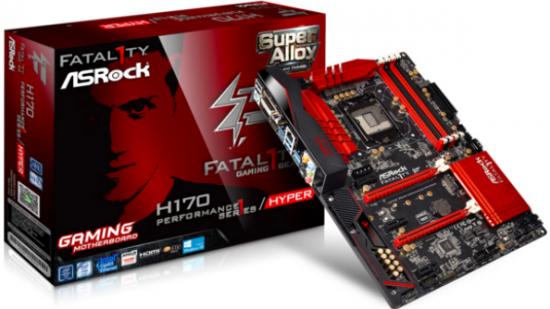The saga continues. It began with a BIOS update to ASRock motherboards which allowed users to overclock their non-K Skylake CPUs by accessing the BCLK multiplier. The plot thickened when Intel released a statement detailing that such functionality would be removed in future BIOS updates – and it’s been thickened still further, to a rich aspic jelly, with the news that ASRock have developed a new motherboard that allows non-K overclocking all over again – this time via an external clock generator that overrides Intel’s on-die generator.
Which games will push your newfound CPU headroom to its limit? The best sandbox games on PC are a good place to start.
ASRock’s newest Skylake motherboards, theFatal1ty H170 Gaming K4 HYPER and Fatal1ty B150 Gaming K4 HYPER (sorry for shouting), are both designed for locked Intel chip overclocking. They’re designed around different chipsets, but share a design trait intended to circumvent Intel’s own clock generator, built into the CPU itself.
Using the external BCLK generator (external only in that it isn’t found on-die, it’s still part of the PCB) users can enter custom values and raise the operating frequency of ‘locked’ Skylake chips such as the i5 6600 and i6 6700 – cheaper models than their 6600K and 6700K equivalents, which differ only in that Intel has ‘unlocked’ all overclocking functionality in them.
It’s a money-saving excercise then, when you boil this non-K overclocking saga down to its essense. The 6700 and 6700K CPUs carry around a $40-$50 price difference, so if a motherboard manufacturer’s able to unlock the performance of the more expensive model, it seems a no brainer.
But as Intel have already demonstrated, this whole practice is balanced on a precipice, and Intel are positioned to blow it over at a moment’s notice. It appears they might not be able to stop you overlocking locked Skylake chips with absolute certainty – since you can circumvent their last attempt to do so by avoiding any future BIOS and firmware updates – but it seems rather too tumultuous to take root in the long term.
Thanks, Techpowerup.
